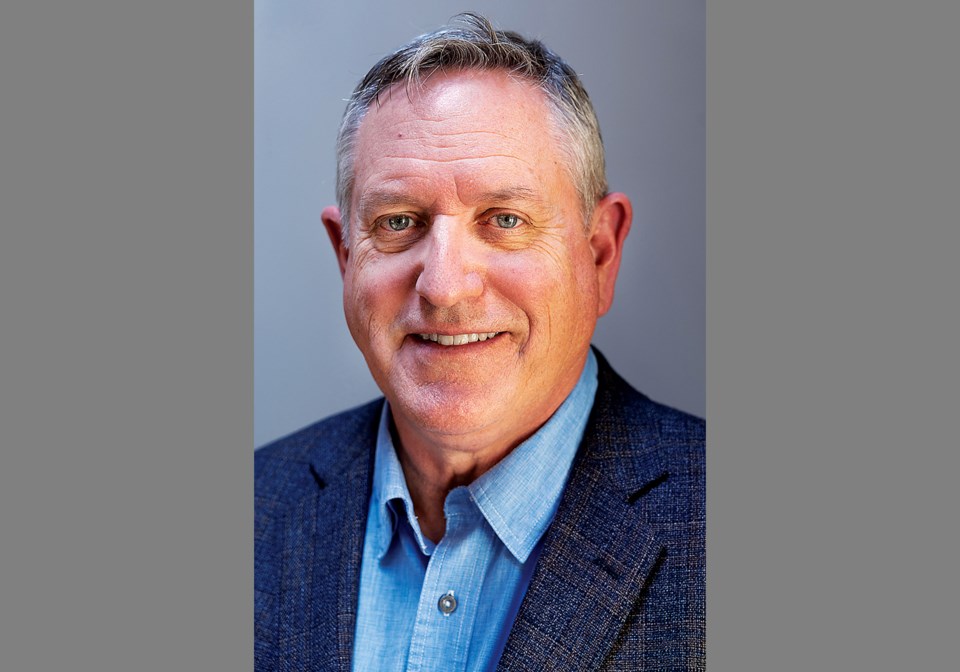The Great Falls Citizens Association (GFCA) will continue its mission to protect natural resources and dark skies and mitigate impacts of development and traffic, said Christopher Rich, who earlier this summer was elected the group’s president.
“We’re concerned the character of the community could change,” said Rich, who succeeded longtime president William Canis. “We’re in this isolated Eden and trying to keep it that way.”
Great Falls has a unique location along a bend in the Potomac River and is one of the most interesting areas along the East Coast, with “fascinating and incredible” natural geography Rich said.
The lack of a crossing for 30 miles between the American Legion Bridge and Point of Rocks means the community is blessed with many gorgeous riverside parks and vistas, he said.
Great Falls also has some human-produced gems, such as the mill, general store and blacksmith shop at Colvin Run Historic Site and the astronomical observatory at Turner Farm Park, he said.
But the community, which formerly consisted of farmlands, still has ample property available for development, and massive new homes are popping up, Rich said.
While GFCA has comparatively little sway, given Virginia’s solid reputation as a property-rights state, “we must be attentive to what’s happening, speak up and use our voice,” Rich said.
One of the community’s main arteries, Georgetown Pike, originally was designed as a commuter road for horses and wagons headed to Washington, D.C., but GFCA still would like to reduce cut-through traffic on it, he said.
The group also is keeping up pressure on the Virginia Department of Transportation not to replace one-lane bridges on Walker and Springvale roads with two-lane spans.
GFCA also is monitoring a proposed Fairfax County dark-skies amendment that would impose extra lighting restrictions on homes within a half-mile of the Turner Farm observatory. The latest revision of the proposed ordinance, which would apply only to future homes within that zone, is “a compromise, but better than nothing,” Rich said.
Rich grew up in the Washington region, attended high school in Bethesda, and earned a bachelor’s degree in anthropology from Colorado College in Colorado Springs. He spent one of his undergraduate years in India, hoping to become a filmmaker, then served for three years in the Peace Corps, where he worked at a rural bank in the Philippines.
While with the Peace Corps, Rich went to the U.S. Embassy in Manila for a snack and became acquainted with a young man who drove a nice car and lived in a home with electricity and cold beer in the refrigerator. Informed that the man worked for the U.S. Foreign Service, Rich took the agency’s test and, after a brief stint with the Peace Corps in Washington, D.C., spent the next nearly 30 years living in the Middle East and Asia.
Rich was posted to India, Pakistan, Bangladesh, Afghanistan, Turkey and Egypt, and later spent two years in Washington, D.C., at the Human Rights Bureau. He spent his final two years with the Bureau of Oceans and International Environmental and Scientific Affairs. He also was the Obama administration’s spokesman regarding the Keystone/XL Pipeline.
Earlier in his career, Rick did work concerning Love Canal, a Superfund cleanup site near Niagara Falls. He now is CEO of the U.S. Water Partnership, which helps communities domestically and abroad tackle water-related challenges.
“I consider myself to be passionate environmentalist, but a moderate one,” said Rich, a lifelong hiker, backpacker, river enthusiast and fly fisherman who also skis and has climbed mountains around the world.
But he acknowledged some developments and roads that he opposed in the past have proved downright convenient, if not indispensable.
Rich likely will bring more of an environmental focus to GFCA, as evidenced by his efforts with residents, youth groups and the Fairfax County Park Authority to revitalize and naturalize the oak grove behind the Great Falls Grange, Canis said.
“Chris has the vision to see how that one project can serve as a demonstration project for all Great Falls residents, showing them the way to naturalize their own property and thereby enhance environmental sustainability community-wide,” Canis said.
Gerald Peters, who is active in the Great Falls Grange Oak Grove Naturalization Project, said Rich has helped recruit and schedule volunteers to remove invasive vines and ground-cover plants at the site.
“Chris immediately gains respect for his willingness to pitch in on worthwhile projects and positions,” Peters said. “His friendly responsiveness and range of knowledge on many topics gives me, and apparently many others, confidence that he will do the jobs well that he signs on to.”
Rich will bring new energy and a fresh look to the GFCA board and already has appointed some new committee co-chairs, Canis said. The new president also has the integrity, open-mindedness and commitment needed to preside constructively over the group’s board meetings and interact well with GFCA’s large membership, which grew significantly last year, he said.
“With his past career as a U.S. Foreign Service officer, he brings to GFCA a knowledge of effective negotiation with key government stakeholders, a skill set that will serve him well with county and state officials with whom GFCA works continually,” Canis said.



